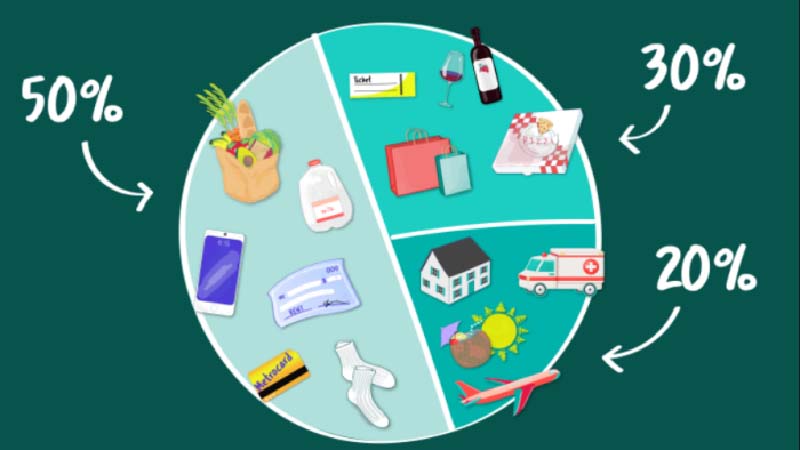You need to know how to manage your family’s finances by spending wisely. This way, financial worries won’t put pressure on your life.
1 What is family spending?
Family spending refers to all expenses that serve the material and emotional needs of the family members from their sources of income.
 Family spending
Family spending
The costs for material needs include expenses for purchasing personal items, food and drink, electricity bills, water bills, transportation costs, etc. The costs for emotional needs include entertainment expenses (Netflix, Spotify, cable TV, etc.), travel expenses, etc.
2 Effective tips for family spending
Create a budget table for expenses
A budget table is a method of recording expenses, helping you spend more reasonably. The budget table will help you plan your expenses based on specific figures in expense limits such as savings and expenses that you have set previously.
 Create a specific budget table for each day, week, and month
Create a specific budget table for each day, week, and month
Through this expense budget table, you can also control your shopping, not spending too much on unnecessary things.
Creating a budget will help you use money more scientifically, ensuring the stability of your family’s finances.
Set savings goals
Setting savings goals with specific numbers will motivate you to save more. At the same time, setting savings goals also makes you think carefully before wanting to buy an unnecessary item.
 Set specific savings goals
Set specific savings goals
From there, you can save some money for investment, travel, or do the things you’ve always dreamed of.
Create a shopping list before shopping
Every time we go shopping, we often buy a lot of unnecessary things. The reason is that the arrangement of products in supermarkets and stores is often eye-catching. In addition, supermarkets and stores often have promotional programs. Therefore, you often buy additional items that you don’t need for yourself.
 Create a specific list before shopping
Create a specific list before shopping
Creating a shopping list before shopping will help you list specific items to buy. Besides, you won’t have to buy unnecessary items, saving you some of your expenses.
50/30/20 rule
The personal finance management rule introduced by entrepreneur Amelia Warren Tyagi in the book “All Your Worth: The Ultimate Lifetime Money Plan.” With this rule, you will divide your monthly income into 3 main categories: Essential needs, personal expenses, and savings (or debt repayment).
 Apply the 50/30/20 rule
Apply the 50/30/20 rule
In which, essential needs such as food, electricity, water, etc. will account for 50% of the total amount. Personal expenses such as shopping, personal items, etc. will account for 30% of the total amount. The remaining 20% will be the money you save or use for debt repayment.
With this financial management approach, you won’t exceed the set limits because you have to allocate them to separate money groups at the beginning of each month.
Save electricity and water
Saving electricity and water is also a way to save money. You will turn off unused electrical devices, use water more scientifically. Within a month, you will see a noticeable change in your electricity and water bills.
 Save electricity and water to save money
Save electricity and water to save money
In addition, you can invest in a solar energy collection system and generate electricity from solar energy for your home. It will help you save a lot of electricity.
Seek additional sources of income
In addition to saving, you can also increase your income by doing other jobs besides your main job. However, make sure not to let this additional job affect your main source of income.
 Seek additional sources of income outside
Seek additional sources of income outside
You can also sell used items that are still in good condition but no longer suitable for you, such as clothes, jewelry, accessories, etc.
Through the above tips, we hope you will find. From there, you will enjoy life more without financial worries.





































